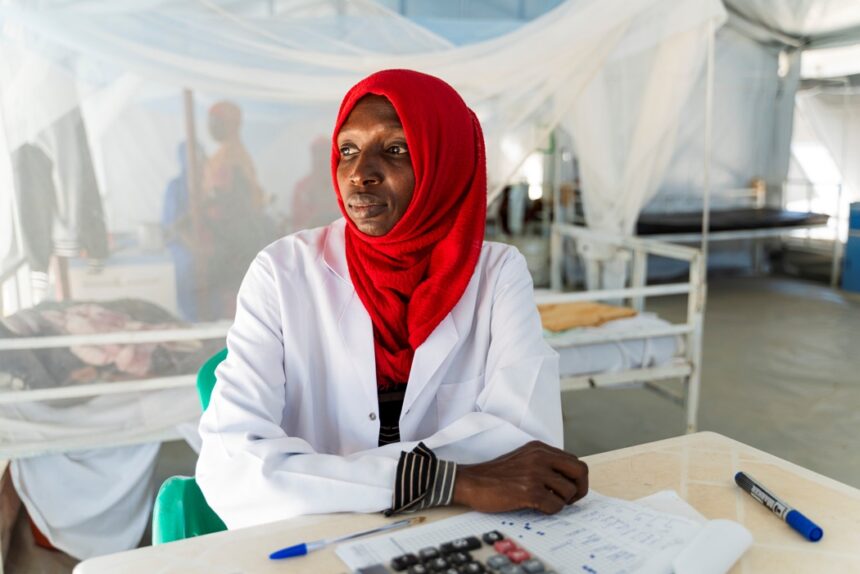Empowering Displaced Communities: A Path to Economic Prosperity in Africa
By Reeta Roy, President and CEO, Mastercard Foundation
During a recent visit to Kakuma, one of Kenya’s largest refugee settlements, in preparation for the Africa Forum on Displacement conference, I was reminded of the resilience and potential that exist within displaced communities. One remarkable story that stood out was that of Mesfin Getahun, a former refugee who now runs a successful wholesale business in the settlement, supporting numerous refugee-run enterprises and giving back to the community.
Mesfin’s journey from arriving in Kakuma with nothing to becoming a thriving entrepreneur is just one example of the many success stories that can be found across Africa. These individuals, despite being displaced, have shown incredible resilience and determination to not only rebuild their lives but also contribute positively to their communities.
Today, Africa is home to 45 million forcibly displaced people, presenting both a challenge and an opportunity for the continent. Recognizing this potential, the Mastercard Foundation has committed $300 million to expand its partnership with the United Nations High Commissioner for Refugees (UNHCR). This initiative aims to provide education and employment opportunities for over half a million refugees and displaced youth in Africa, with a focus on empowering women.
The Young Africa Works strategy by the Mastercard Foundation aims to create opportunities for 30 million young Africans in meaningful employment by 2030. By partnering with UNHCR and empowering local and refugee-led organizations, the Foundation is ensuring that solutions are driven by those most affected by displacement.
This collaborative approach not only benefits refugees and displaced individuals but also has a positive impact on host communities and local economies. By investing in education and economic inclusion, we can transform refugee settlements into vibrant economic hubs where everyone can thrive.
To achieve sustainable outcomes, it is essential for host governments to create enabling policies that support refugees’ right to work and movement. Development funders and the private sector also play a crucial role in driving economic inclusion and creating opportunities for refugees to contribute to the workforce.
The Mastercard Foundation’s commitment to empowering displaced communities is just the beginning. Collaboration from various stakeholders is key to unlocking the full potential of refugees and creating a brighter economic future for Africa as a whole.
About our Partnership with UNHCR
The ongoing partnership between the Mastercard Foundation and UNHCR has already shown promising results in countries like Sudan, where thousands of young people have been able to access education and employment opportunities. By leveraging UNHCR’s expertise and reach across the continent, we can scale these impactful initiatives and address displacement challenges on a larger scale.








